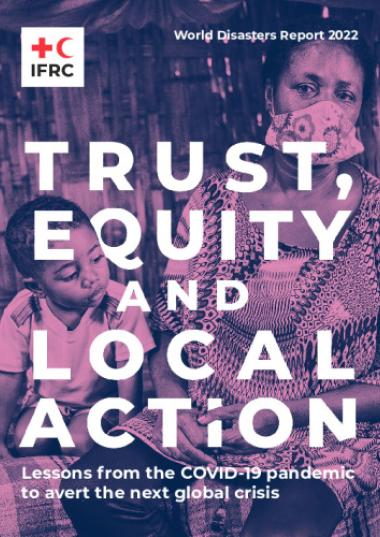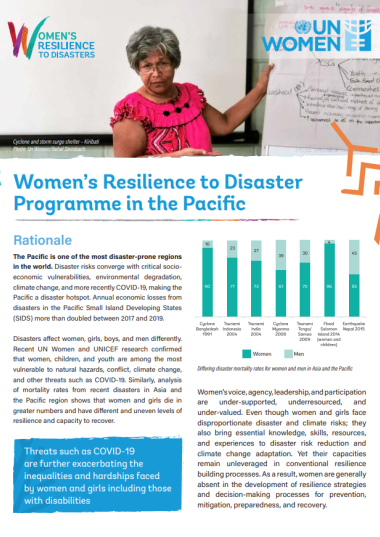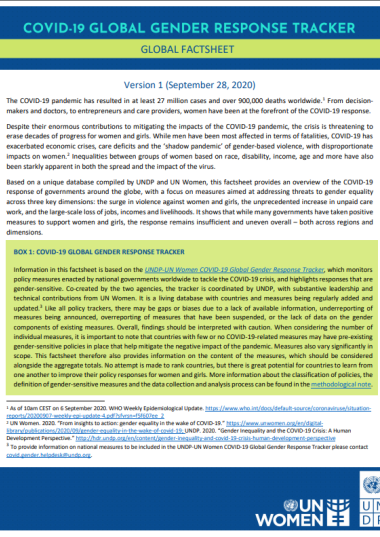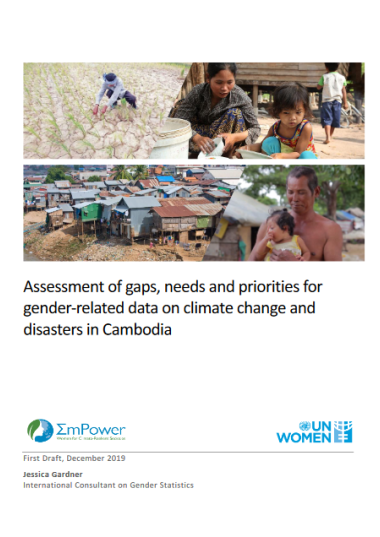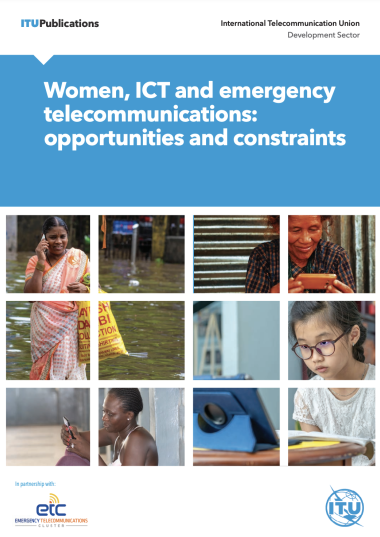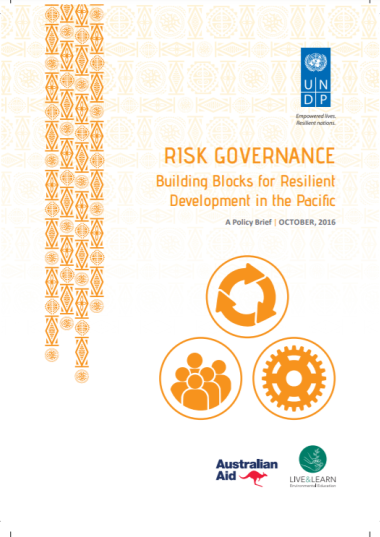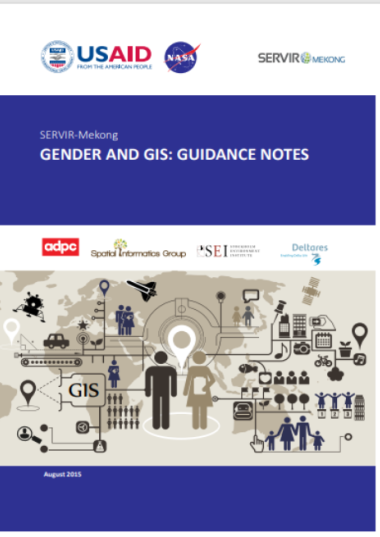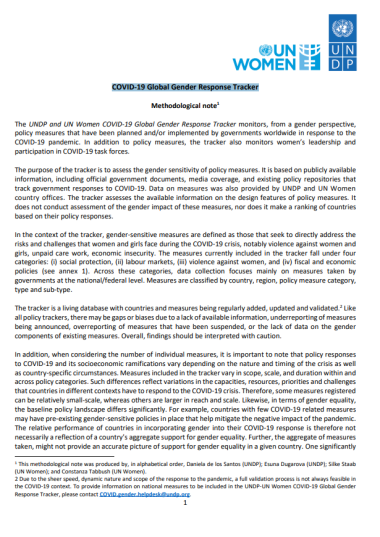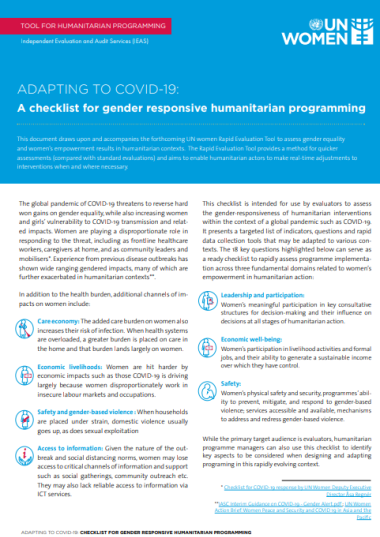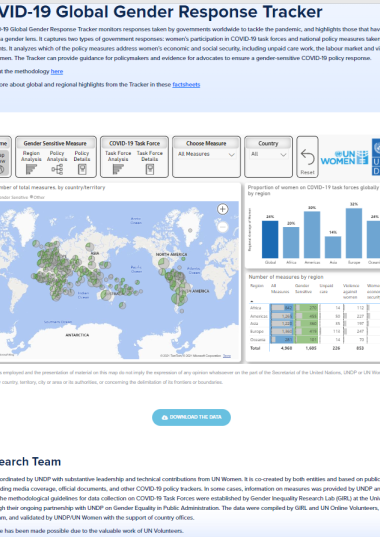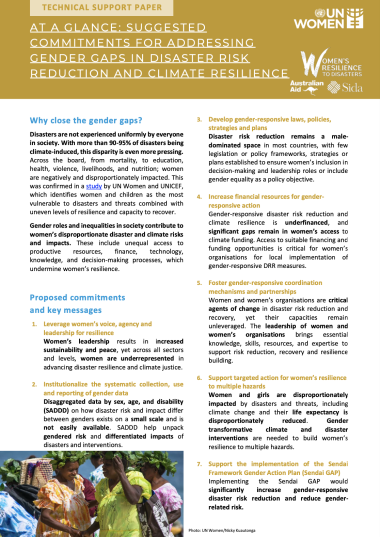
Information management systems
Recent research by UN Women identifies fragmented data collection initiatives, outside of the national census, as a key challenge. Data, especially when disaggregated, is too often collected through individual projects rather than through a centralised and systematic initiative. As a result, critical gender-specific risk and disaster knowledge and evidence is fragmentary and disconnected. Supporting an enabling institution (e.g. national statistical offices) to consolidate, analyse, and disseminate disaggregated data for various levels of gender-responsive DRR planning and monitoring is imperative to acquiring a holistic understanding of gender-specific risks.
A gender-responsive information management system is needed to ensure the collection and use of gender, age, and disability disaggregated data and information. Firstly, it will ensure that women’s knowledge is utilised and their perspectives and experiences in reducing risks and building resilience are collated and shared. Secondly, it will support knowledge sharing across agencies, including national gender ministries, central planning and finance agencies, and national disaster management organisations, but also beyond agencies, for instance with women’s or disabled people’s organisations. Finally, it will ensure that knowledge dissemination is responsive to the needs of users and accessible.
Composite mechanisms and local and national capacities are needed across sectors for collecting, analysing, managing, using, and sharing disaggregated data (e.g. on vulnerabilities, risks, impacts), and gender and diversity analysis to inform decision making, policies, and programmes.
